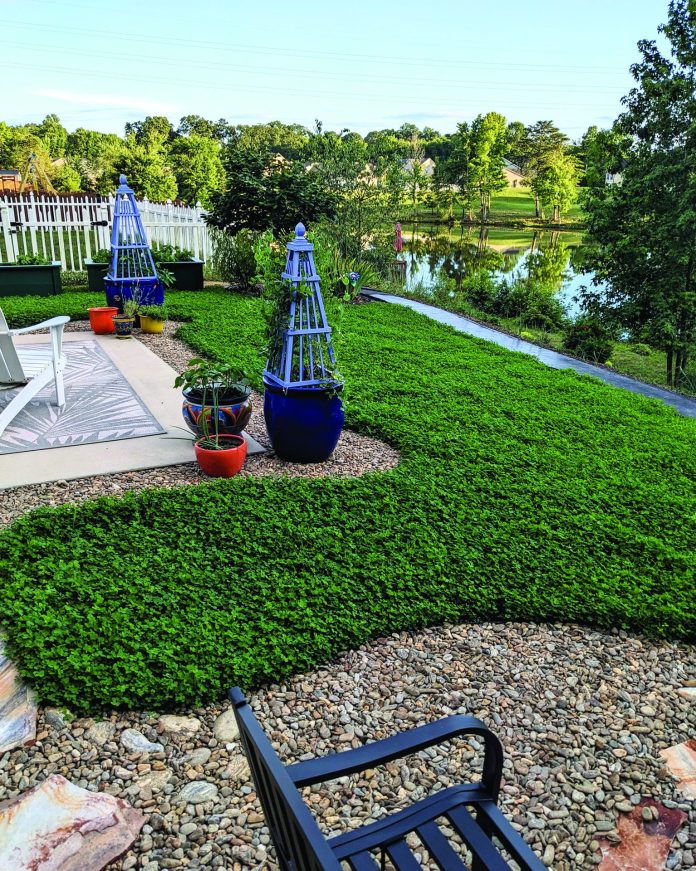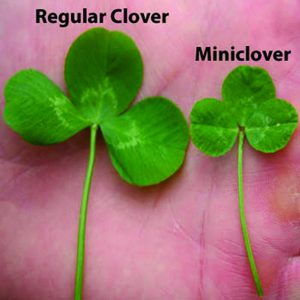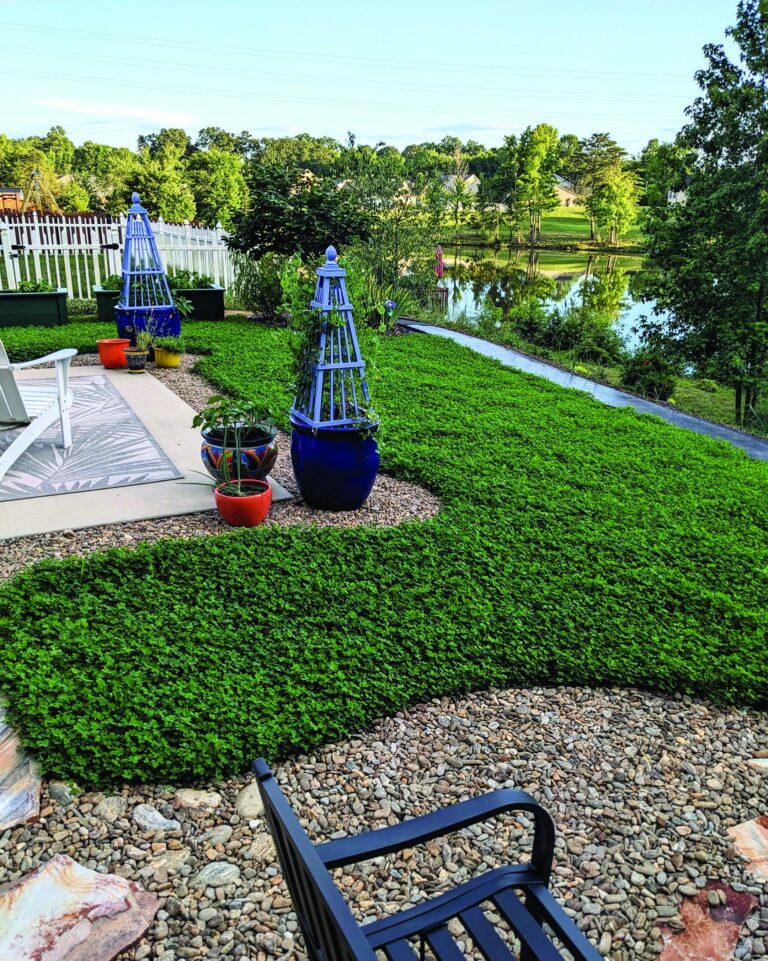
By Joan Casanova, from Family Features
If you're considering renovating your garden, there are sustainable, drought-resistant alternatives to high-maintenance, water-intensive lawns that also reduce your environmental footprint.
“Clover Lawn” went viral on social media last fall, becoming the most searched home improvement trend on Google in 2023. Search #cloverlawns on Tik Tok and you'll see over 150 million views and tons of photos and videos. A gorgeous fluffy, lush green lawn grown with mini clover seeds.
“'Mini clover' (Trifolium repens) is about 1/3 to 1/2 the size of white clover, grows only 4 to 6 inches, and creates a thick carpet-like appearance that blends well into the lawn.” Troy Hake said. President and owner of Outsidepride.com, a provider of drought-tolerant grasses, clover, wildflower seeds, and more. “It's cheaper than grass seed, looks great, and is a natural solution for a self-sustaining, low-maintenance lawn that eliminates the need for fertilizers, herbicides, insecticides, and weekly mowing. Past 2 Even though we doubled our production for the year, we sold out. You can't go wrong with that.”
Ever wonder why grass gets a bad rap? The truth is that climate change is looming and will further alter the natural patterns of drought, increasing their frequency, duration, and severity. But lawns are not sustainable. It's the most high-maintenance part of your garden, requiring regular fertilization, mowing, and heavy irrigation to keep it looking its best. Nationally, landscape irrigation is estimated to account for nearly one-third of all residential water use, totaling nearly 9 billion gallons per day. Additionally, gas-powered lawn and garden equipment emits more than 30 million tons of carbon dioxide, according to the U.S. Environmental Protection Agency's National Emissions Inventory.
Some regions continue to have strict regulations regarding watering lawns or ban the use of potable water for lawn irrigation. With growing concerns about climate change and water scarcity, some homeowners are looking for landscape solutions that minimize water usage and reduce their impact on the environment. What stands out in this regard is that mini clover requires significantly less water to grow than conventional grass. Drought tolerant, has longer and deeper roots than grasses, reaches the soil for the moisture it needs, requires minimal watering, stays green longer and is more resilient during periods of drought and water restriction indicates.
It takes nitrogen from the air and “fixes” it into the soil, helping to keep grass green and growing while adding natural nitrogen to the surrounding soil, eliminating the need for fertilizers or nitrogen plant feed. .

Some homeowners have already torn out the grass and replaced it entirely with mini clover. Some people reap the many benefits of clover by seeding their existing lawn while maintaining the lawn-like appearance without completely replacing the lawn. Both options are more sustainable and environmentally friendly than grass.
With busy lifestyles becoming the norm, many homeowners desire landscaping solutions that require minimal maintenance. Lawns require regular mowing, watering, and fertilization, but perhaps it's time to grow something other than a traditional lawn. Mini clover's slow growth reduces mower time, and its dense growth pattern, evenly distributed by its stolons (stems that grow horizontally along the ground), sweeps out weeds and reduces erosion. .
No herbicides required. they would kill it. It is not eaten by larvae or eggs laid by insects. It can tolerate compacted soils and is even resistant to “dog spot.” It quickly fills in bare areas and withstands wet conditions. Mow it as much as you like – the more you cut it, the smaller the leaves will be – or just let it grow closer to the ground like grass. It blooms only once in summer, with small, delicate flowers that provide nectar for bees, and in some cases flowering is prevented by mowing. It is resistant to foot traffic, making it ideal for walkways and play areas, and its shade tolerance makes it suitable for areas with limited sunlight.
Mini clovers are a dream come true for homeowners looking to take back their weekends and minimize the time and effort they spend caring for their lawns. True to its hype, this home offers a great combination of environmental sustainability, very low maintenance, drought tolerance, aesthetic appeal, and cost efficiency, helping not only the homeowner's property but the planet as well. bring profit.
For more drought tolerant options, visit Outsidepride.com.


